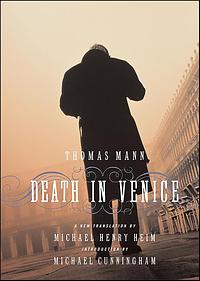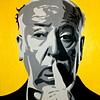Take a photo of a barcode or cover
challenging
dark
reflective
slow-paced
Plot or Character Driven:
Character
Strong character development:
Complicated
Loveable characters:
Complicated
Diverse cast of characters:
N/A
Flaws of characters a main focus:
Yes
challenging
Da bi knjiga za mene postala „posebna“, uglavnom mora da bude i dugačka. Iz nepoznatih razloga, obično prvih pedesetak stranica provedem u nekom više trpeljivom raspoloženju no u pravom uživanju i tek tad, kao da je neko upalio svetlo, počinjem da kontam i razmišljam i stvarno dozvolim romanu da me odnese.
Ovo ima u mom izdanju šezdeset i osam stranica.
I stvarno – divno je napisano, tematski fascinantno, atmosferično. O tome šta znači reč „lepota“ (zanimljivo stoji pored Mišiminog Paviljona koji sam isto čitao nedavno; zanimljivo stoji i pored Lolite, odn zašto se tačno čini da ovde pedofilija nije "velika stvar"?), o umetnosti, o starosti. Simbolično, slojevito. Fa-sci-nan-tno. Ali ima šezdeset i osam stranica.
4
Ovo ima u mom izdanju šezdeset i osam stranica.
I stvarno – divno je napisano, tematski fascinantno, atmosferično. O tome šta znači reč „lepota“ (zanimljivo stoji pored Mišiminog Paviljona koji sam isto čitao nedavno; zanimljivo stoji i pored Lolite, odn zašto se tačno čini da ovde pedofilija nije "velika stvar"?), o umetnosti, o starosti. Simbolično, slojevito. Fa-sci-nan-tno. Ali ima šezdeset i osam stranica.
4
I suppose I have officially become a Thomas Mann fan, which is somewhat unexpected. But the way he uses the German language feels so good to read, and he simply is a great writer able to portray humans in all their complexities.
Even though it is short and probably therefore considered to be more accessible than the Buddenbrooks, I think the density of this work could be a hurdle for some. It’s also extremely atmospheric and melancholic, and beautiful. I enjoyed it a lot.
And, as someone whose mother tongue is German but probably has read more in English than in German over the course of her life, it feels good to learn to appreciate the German language for what it can do. Obviously I’ve read Goethe and liked it, but German authors from the first half of the 20th century (and probably the second half, too) are a nit of a blind spot that I think I’m slowly going to fill in the next year or so. I am definitely going to read morr but all the Manns.
Even though it is short and probably therefore considered to be more accessible than the Buddenbrooks, I think the density of this work could be a hurdle for some. It’s also extremely atmospheric and melancholic, and beautiful. I enjoyed it a lot.
And, as someone whose mother tongue is German but probably has read more in English than in German over the course of her life, it feels good to learn to appreciate the German language for what it can do. Obviously I’ve read Goethe and liked it, but German authors from the first half of the 20th century (and probably the second half, too) are a nit of a blind spot that I think I’m slowly going to fill in the next year or so. I am definitely going to read morr but all the Manns.
Beautifully written and evocative but kinda disturbing as it's basically about an old guy lusting after a child, especially taking into account how it was inspired by the author’s own experience as the older man.
Their gender might be noteworthy, but it doesn't really change the age difference or that one of them is, indeed, very much a child, and it's from the point of view of the adult that we experience this infatuation from. I was reminded of the few pages I've read of Lolita, but Death in Venice is more romanticised and the criticism of the central character feels more nuanced, almost at risk of telling the story at face value.
Still, Von Aschenbach is such an ass that it's impossible to take him too seriously, and the writing is enchanting and well constructed, even when often at risk of losing its way meandering between ironic comparisons and philosophical wanderings; and the great sense of character description breathes naturalistic life into them.
The moral decline of the man is made metaphorically clear within the medicinal downfall of the city surrounding him, a clear warning against such unhealthy and consuming obsessions, perhaps the author wagging a finger at himself, and anybody else who'd be tempted by anything similar, be it as disgusting as this, or something much tamer, closer to most of our’s reality, but as potentially crushing still.
The author also seems to go out of his way to point out, perhaps ironically, how even such a great observer and describer of humanity is incapable of resisting; one wonders what chance have we mere mortals got then? Or perhaps it’s Aschenbach’s artistic ability to consider beauty more greatly that is his downfall, the author stroking his own ego while contemplating the danger.
It is sometimes difficult to enjoy this book due to its disturbingly pedophiliac subject matter and point of view, but the language and irony do still offer moments of unadulterated pleasure (a sentence that is a challenge to write all by itself), and the final chapter is somewhat poignant. I'm eager to try out more Mann, something I've never said before; I just hope the challenge in the other novels lies in more innocent viles.
Their gender might be noteworthy, but it doesn't really change the age difference or that one of them is, indeed, very much a child, and it's from the point of view of the adult that we experience this infatuation from. I was reminded of the few pages I've read of Lolita, but Death in Venice is more romanticised and the criticism of the central character feels more nuanced, almost at risk of telling the story at face value.
Still, Von Aschenbach is such an ass that it's impossible to take him too seriously, and the writing is enchanting and well constructed, even when often at risk of losing its way meandering between ironic comparisons and philosophical wanderings; and the great sense of character description breathes naturalistic life into them.
The moral decline of the man is made metaphorically clear within the medicinal downfall of the city surrounding him, a clear warning against such unhealthy and consuming obsessions, perhaps the author wagging a finger at himself, and anybody else who'd be tempted by anything similar, be it as disgusting as this, or something much tamer, closer to most of our’s reality, but as potentially crushing still.
The author also seems to go out of his way to point out, perhaps ironically, how even such a great observer and describer of humanity is incapable of resisting; one wonders what chance have we mere mortals got then? Or perhaps it’s Aschenbach’s artistic ability to consider beauty more greatly that is his downfall, the author stroking his own ego while contemplating the danger.
It is sometimes difficult to enjoy this book due to its disturbingly pedophiliac subject matter and point of view, but the language and irony do still offer moments of unadulterated pleasure (a sentence that is a challenge to write all by itself), and the final chapter is somewhat poignant. I'm eager to try out more Mann, something I've never said before; I just hope the challenge in the other novels lies in more innocent viles.
Dude, this was creepy and weird. It's not homoeroticism if one dude is pre-pubescent and the other is in his 50s. That's pedophilia, I don't care what the Greeks thought. Intensely uncomfortable book. I definitely thought Aschenbach was gonna murder this kid and drink his blood. Christ. I get what Mann was going for (old man lusting after his lost youth, his Muse, making himself ridiculous in his desire to regain youth) but yikes yikes yikes.
challenging
reflective
slow-paced
Plot or Character Driven:
Character
Flaws of characters a main focus:
Yes
Beautiful prose, stunningly written. I imagine this would be really interesting to study, very interesting and haunting themes of youth/decay, beauty/ugliness, longing. At times slightly disturbing! Not much of a plot, more a look into Asenbach's mind. Without studying or analysing deeper into the text at times perhaps a bit hard to get through, but always captivatingly written.
This novella and Magic Mountain, a lengthy novel published 12 years after, share a remarkable number of plot structures - grey eyes, unrequited love, and disease - with decidedly different motives and effects. Death in Venice's exquisiteness proves an exception to the maxim that one must show rather than tell. I am still pondering the nature of its tragedy. I'll get back to you on that.
An unpleasant book that is told from the perspective of a pedophile, Death in Venice seems like a pretty pointless story. Mann is a superbly talented writer, and the novella manages to capture the reader's interest from the palpable creep factor of an old man lusting and stalking a teenage boy, but it is a creepiness that isn't fun to read, and the narrative is sparse and lacks meaning.
challenging
dark
reflective
tense
slow-paced
Loveable characters:
No
Flaws of characters a main focus:
Yes





